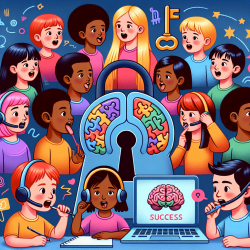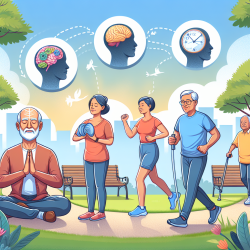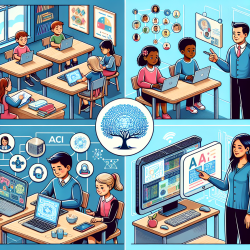The COVID-19 pandemic has necessitated a shift in how educational assessments are conducted, pushing school psychologists to adapt to remote methods. The traditional R.I.O.T. model—Reviewing records, Interviewing key informants, Observing students, and administering Tests—provides a comprehensive framework for student evaluations. However, in a virtual setting, the full application of R.I.O.T. is challenging. Instead, focusing on the R.I.O. components—Records, Interviews, and Observations—can still yield valuable insights.
Understanding the R.I.O. Approach
The R.I.O. model emphasizes using diverse data sources to build a comprehensive understanding of a student's needs. Each component offers unique insights:
- Records (R): Historical data such as academic records and health history provide context for current functioning. These records help identify patterns over time and are crucial for diagnosing developmental issues like ADHD or autism.
- Interviews (I): Conducting interviews with parents, teachers, and students via video platforms allows psychologists to gather nuanced information about a student's behavior and emotional state. Clear communication about the interview's purpose enhances collaboration and data accuracy.
- Observations (O): While traditional classroom observations aren't feasible remotely, observing students during online classes or gathering retrospective observational data from teachers can still provide valuable insights into student engagement and behavior.
Implementing Tele-Assessment Effectively
To maximize the effectiveness of tele-assessment using the R.I.O. model, consider these strategies:
- Leverage Technology: Ensure both you and the families have access to reliable technology for video conferencing and online surveys.
- Communicate Clearly: Set expectations with families about creating a conducive environment for assessments and explain the importance of independent student responses.
- Cross-Validate Data: Use multiple data sources to confirm findings, adhering to the "rule of two"—data should be gathered from two methods or informants in two settings.
- Address Mental Health: Incorporate mental health screenings into assessments to address increased stress levels due to the pandemic.
The Ethical and Legal Considerations
The Individuals With Disabilities Education Act mandates using varied evaluation tools without relying solely on one data source. Tele-assessment must meet these standards by ensuring that data collected remotely is functional and relevant to stakeholders. School psychologists must remain transparent about assessment limitations while striving to provide accurate evaluations that benefit students.
The Future of Tele-Assessment
The shift towards tele-assessment presents an opportunity for school psychologists to refine their skills in collecting qualitative data through interviews and observations. As digital resources become more integral to education, embracing models like R.I.O. will ensure that school psychologists continue to meet legal requirements while adapting to new challenges.
If you're interested in delving deeper into this topic, I encourage you to read the original research paper: When You Can’t R.I.O.T., R.I.O.: Tele-assessment for School Psychologists.










